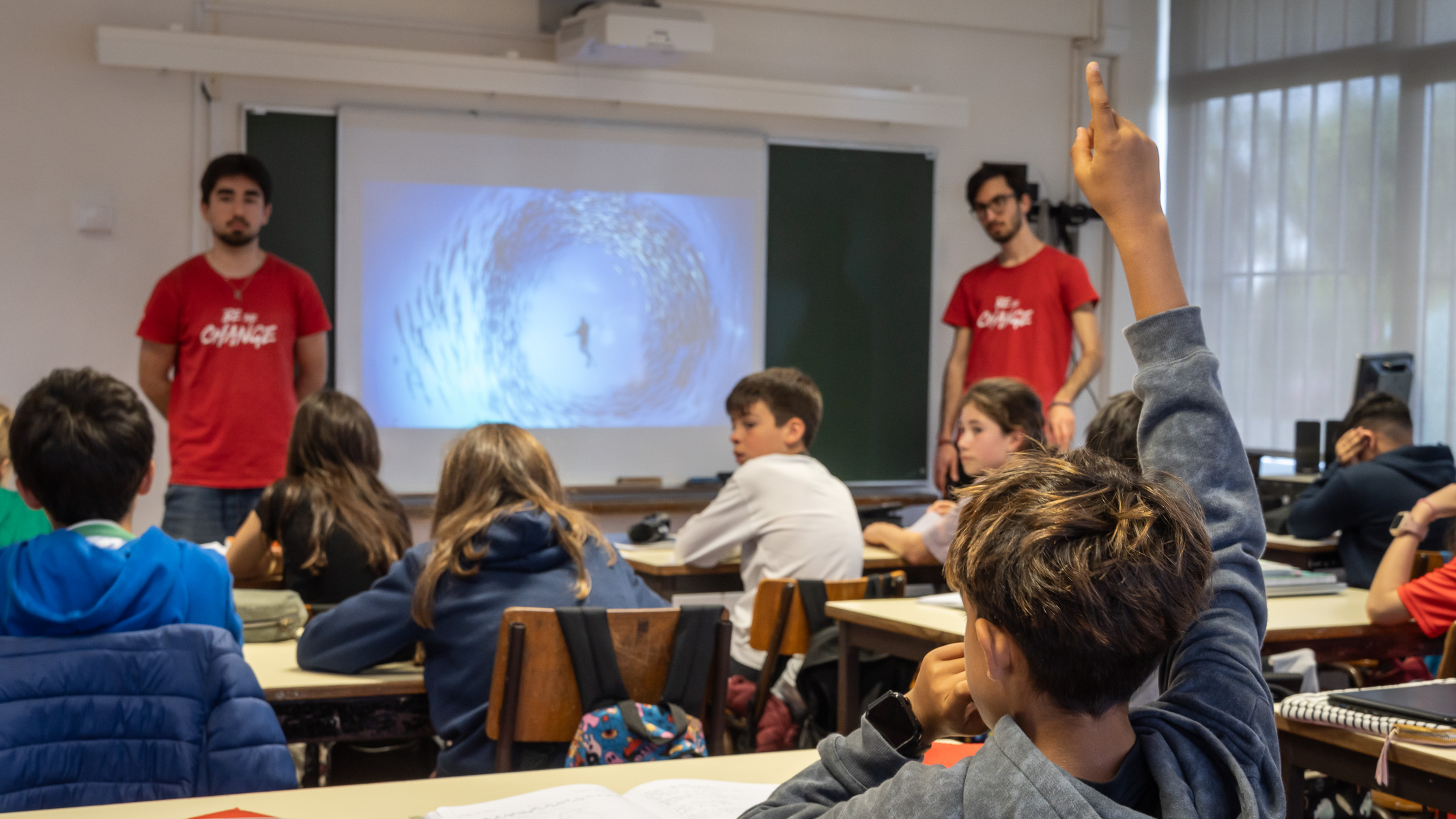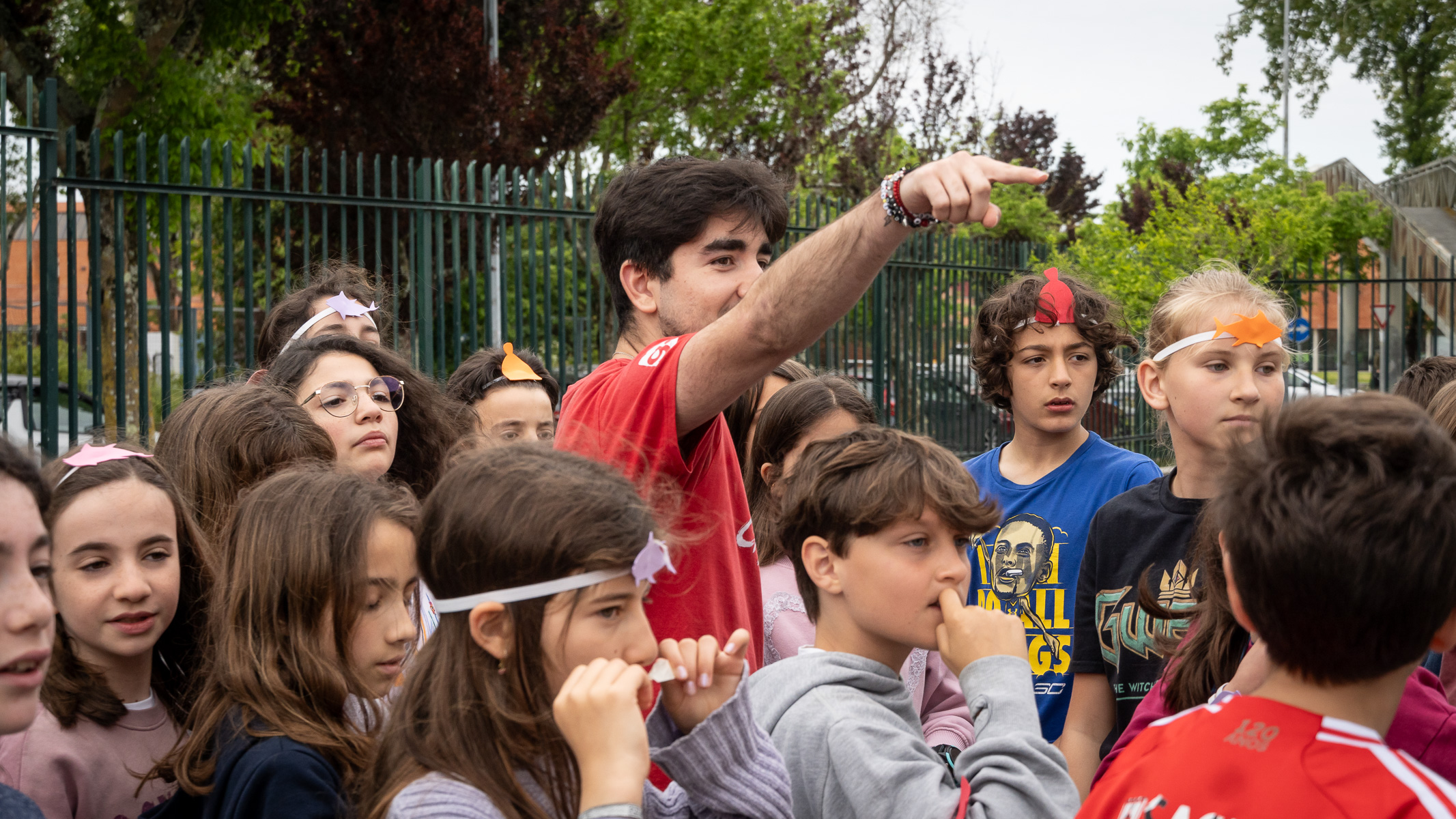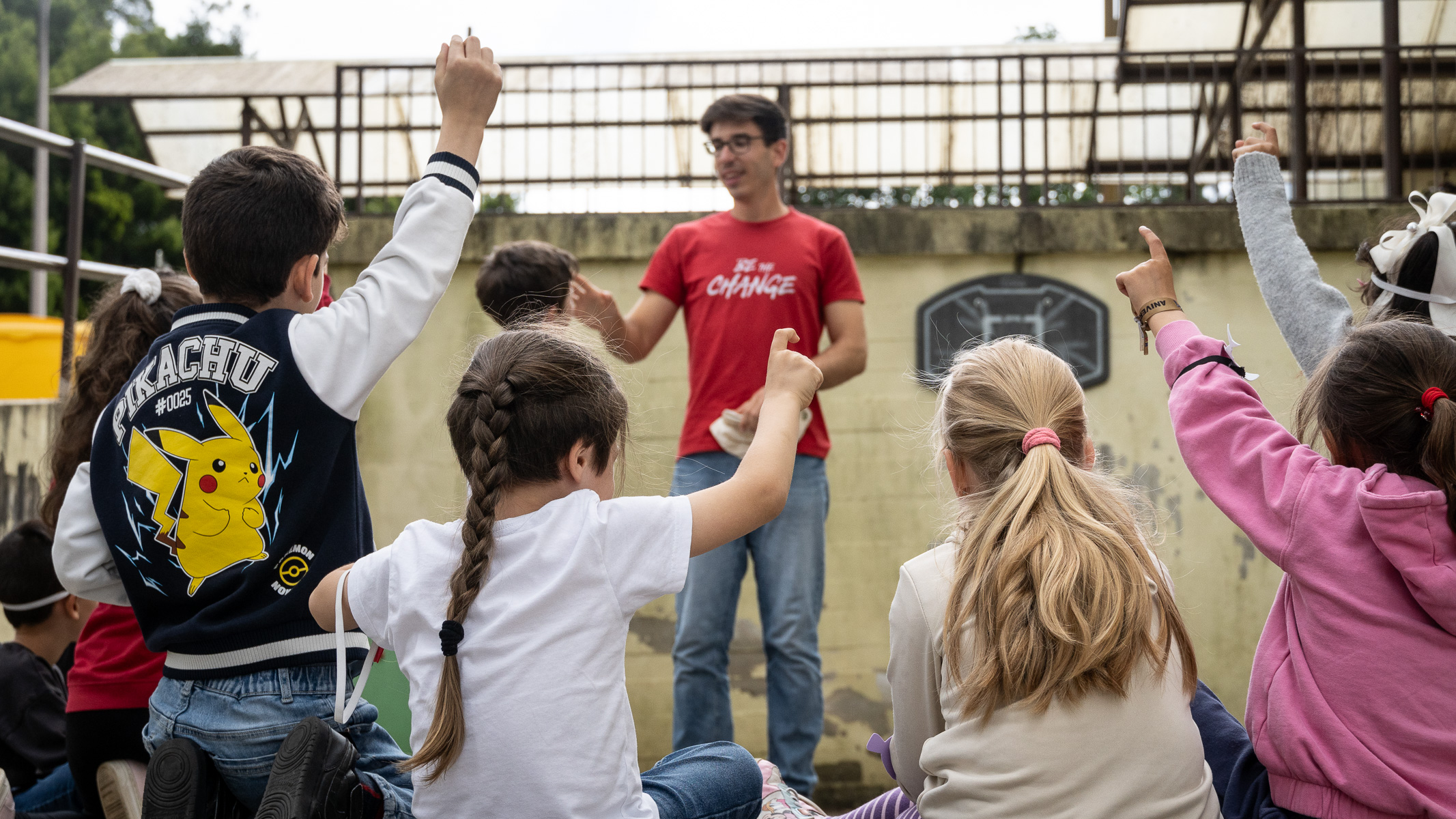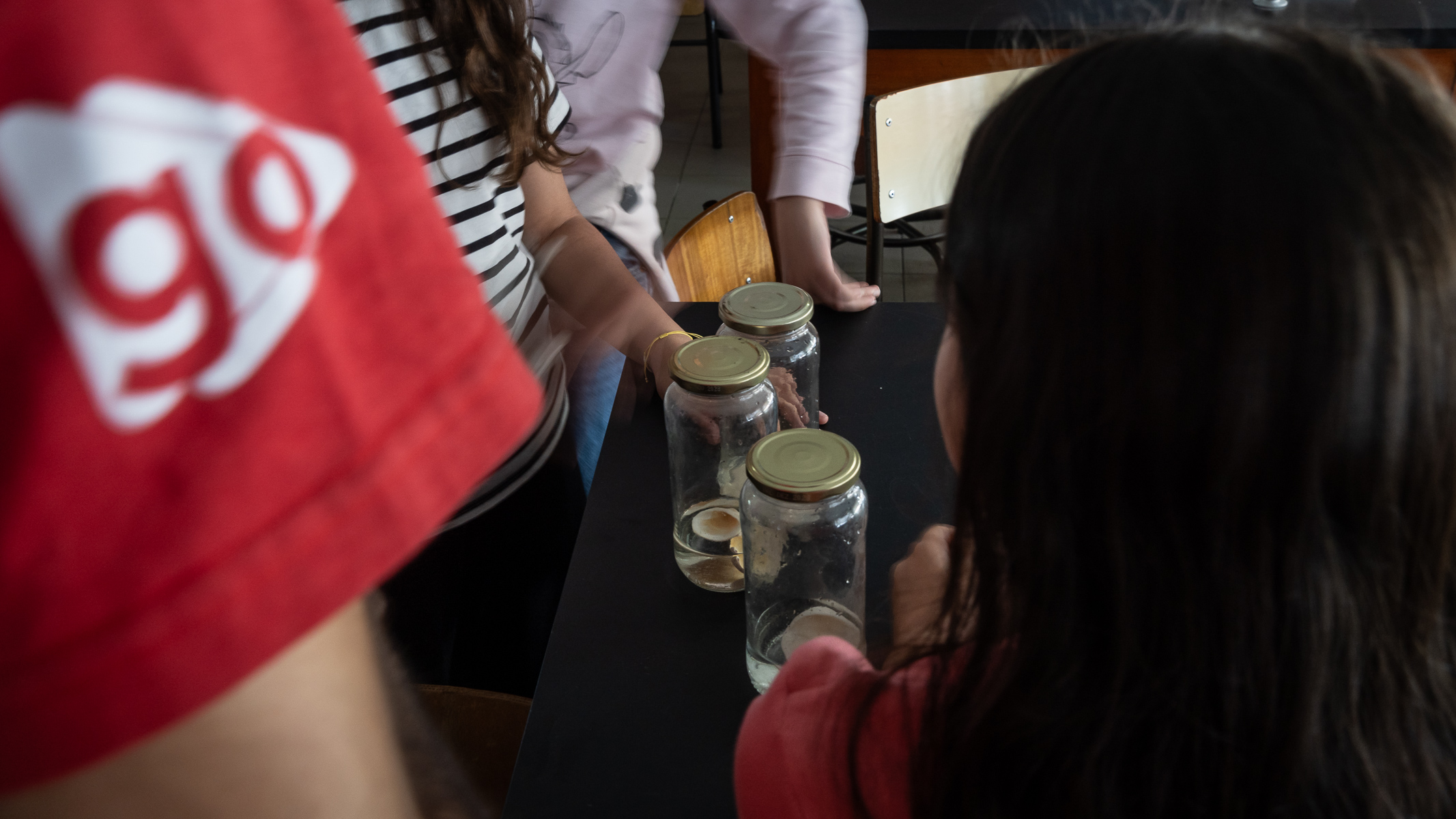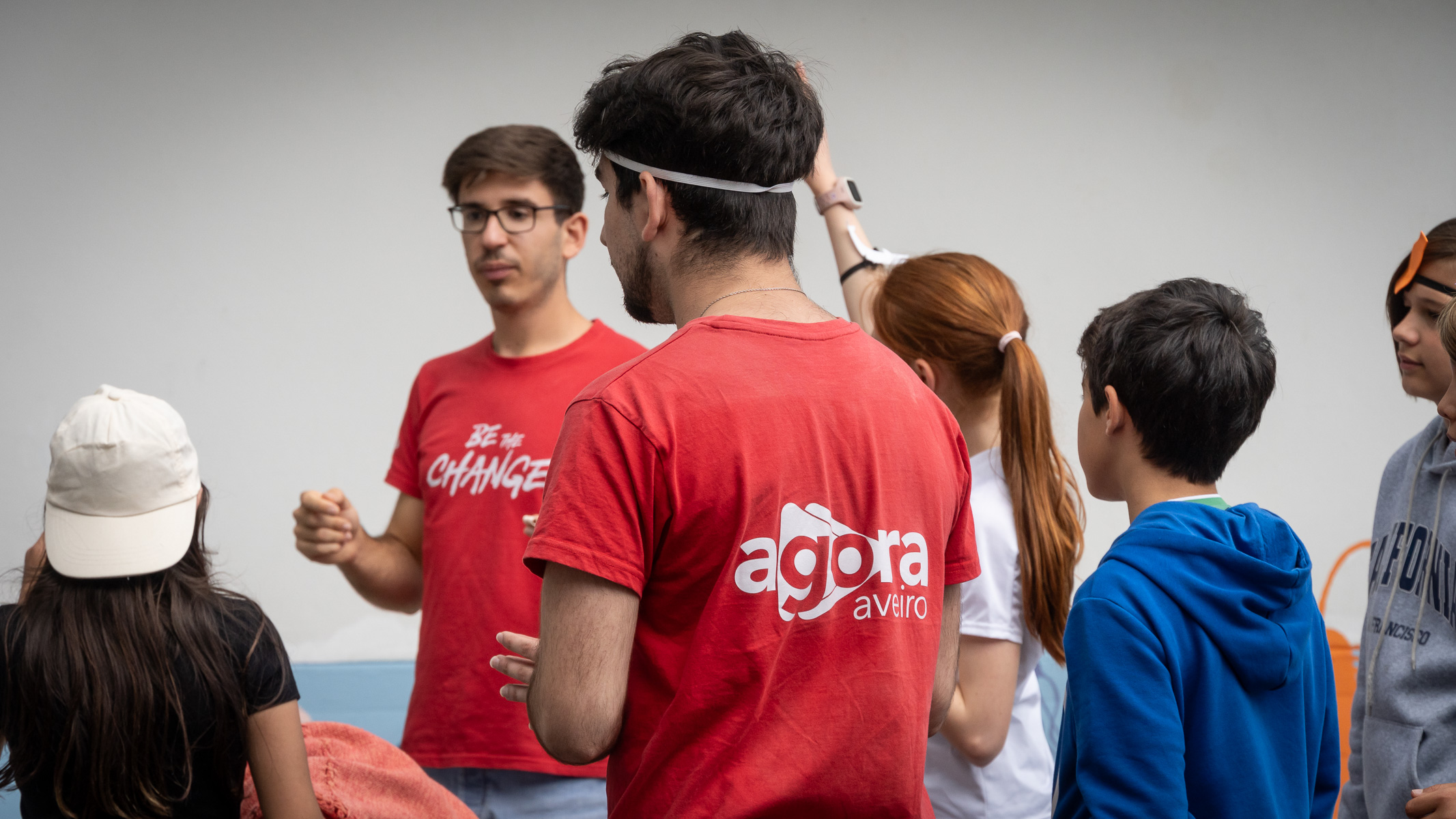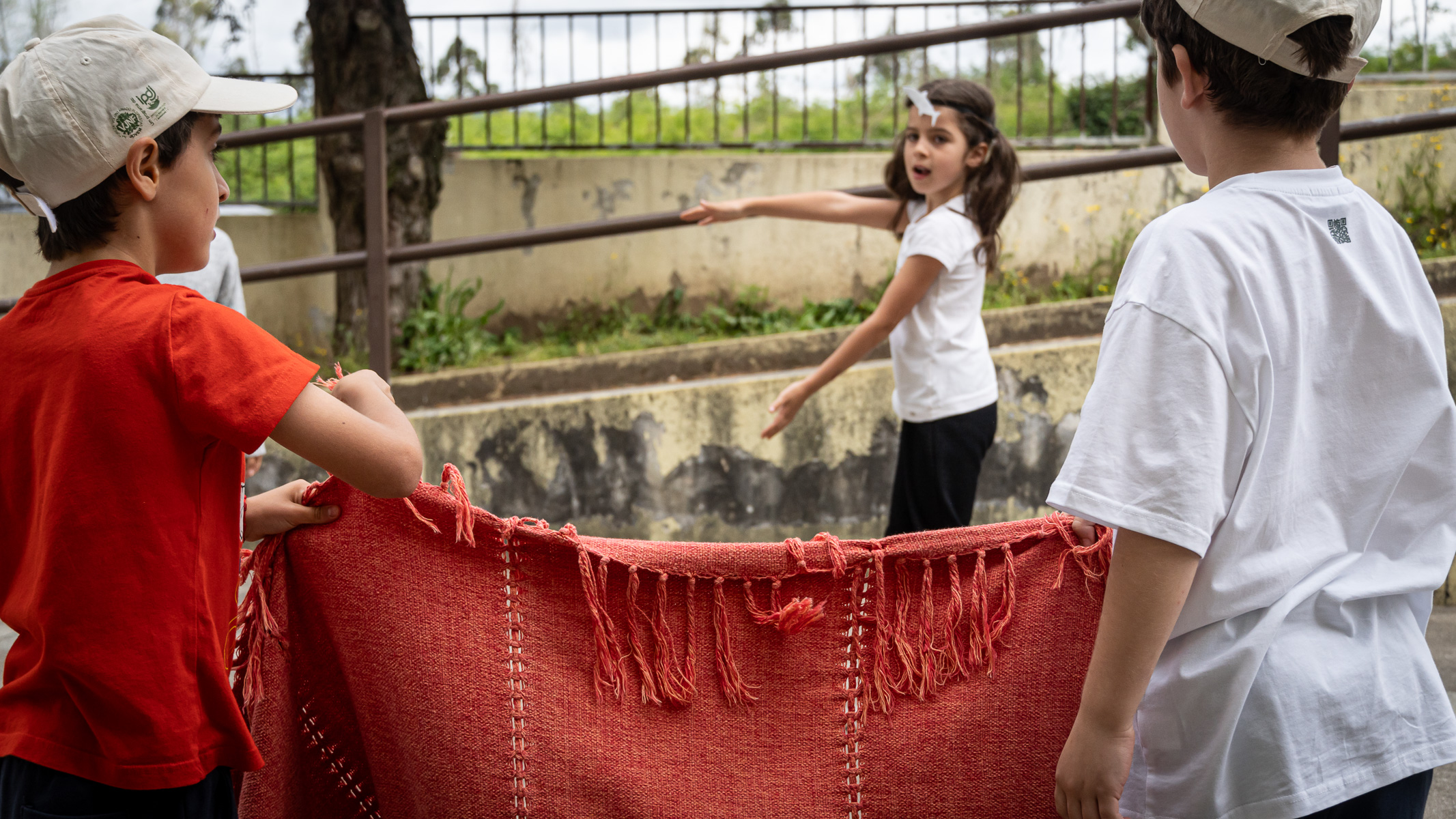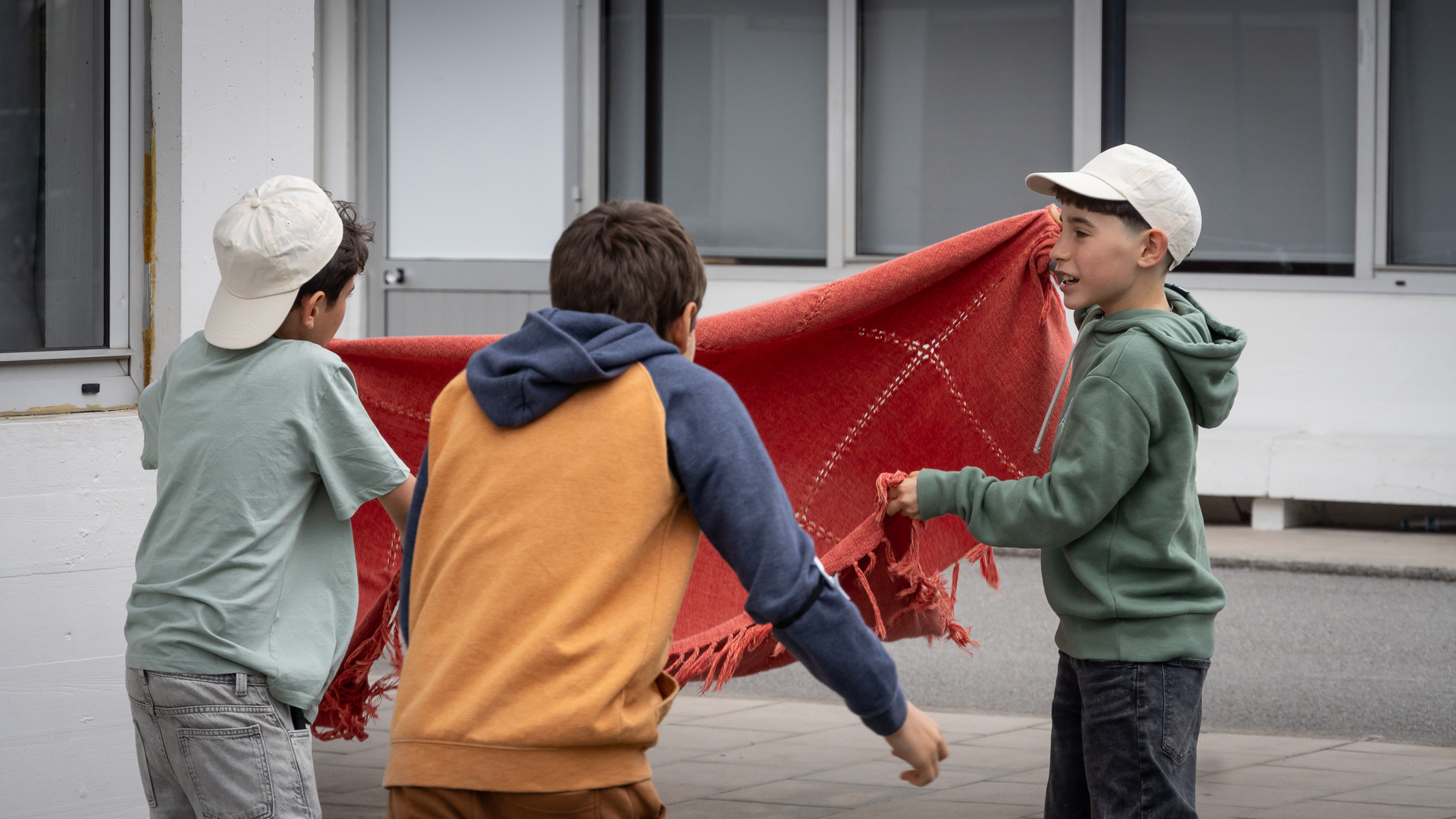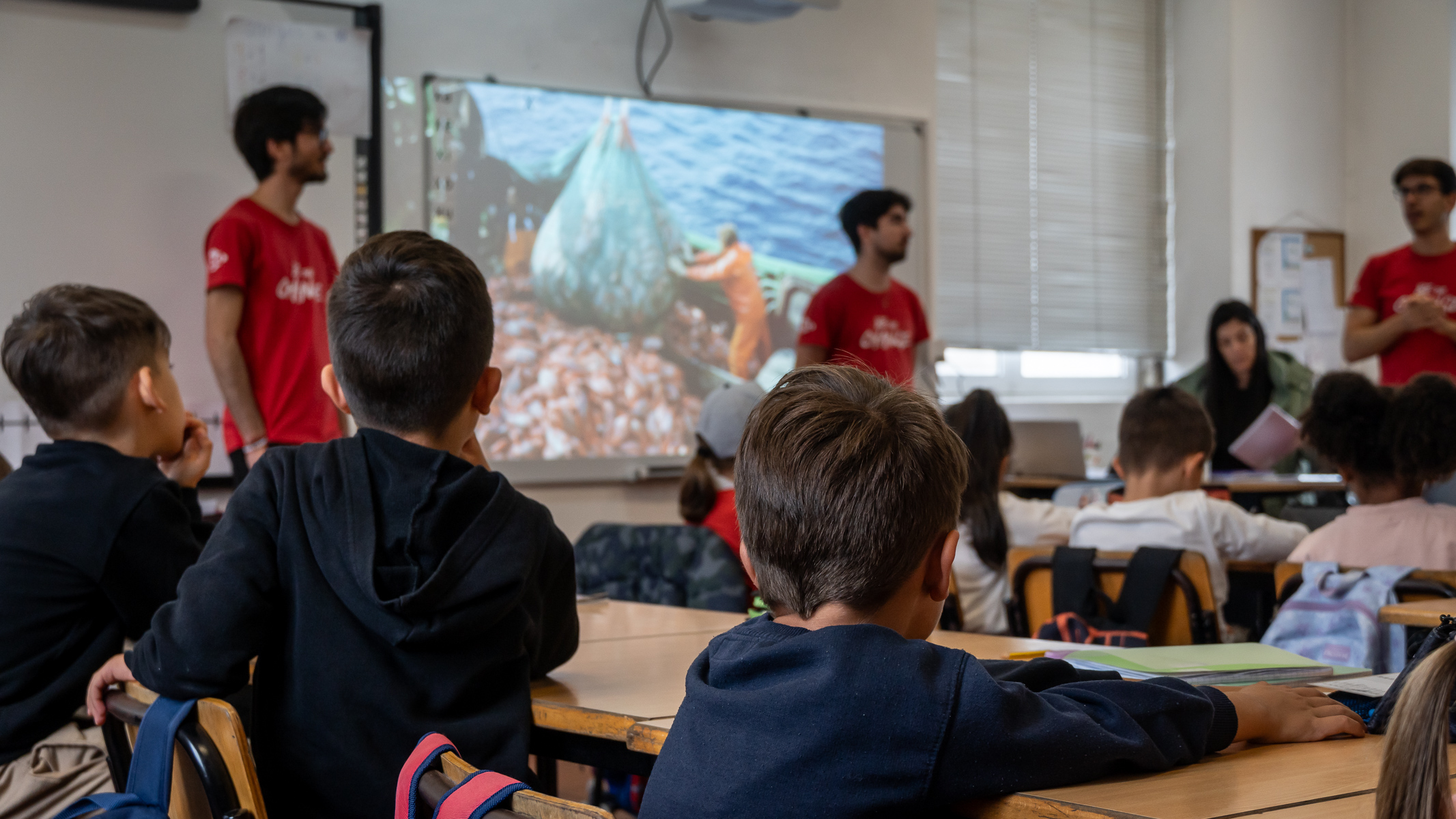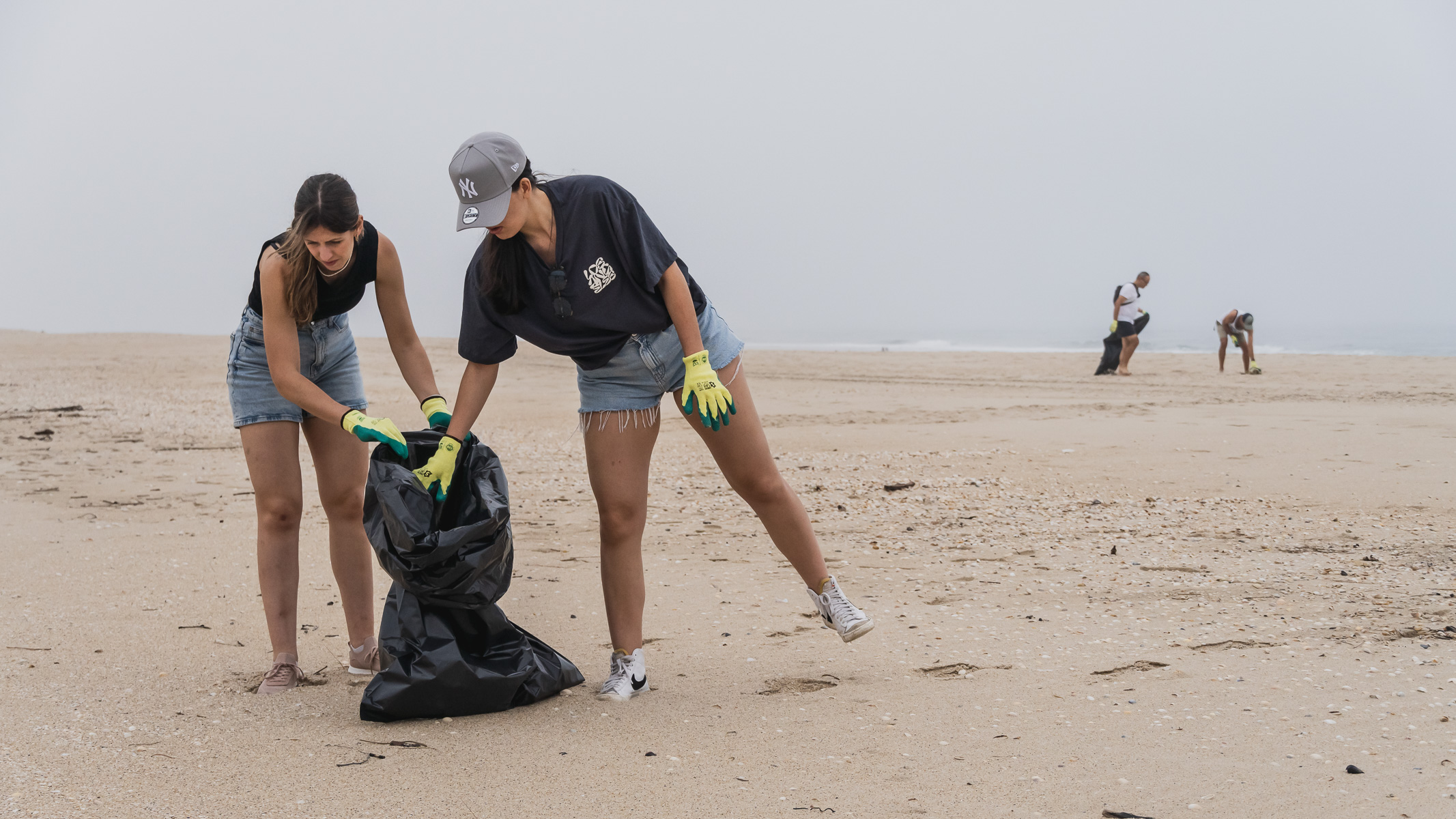Preserving the Oceans: A Challenge for Us All
On the 7th, 9th, and 12th of May, at Escola Básica João Afonso in Aveiro and in several schools from the João da Silva Correia School Group in São João da Madeira, the Guardians of Nature sounded the alarm: the oceans are under threat. It is urgent that we take action to protect them!
Estimated reading time: 3 minutes and 53 seconds
© Sofia Silva
The “Guardiões da Natureza” (“Guardians of Nature”) project aims to raise community awareness about sustainability and environmental responsibility, with a special focus on children and young people. Through non-formal education activities, such as games and workshops, it complements the formal school curriculum and promotes a more responsible and conscious attitude, turning children into true guardians of nature and the environment as a whole.
On the 7th, 9th and 12th of May, the Guardians of Nature embarked on a new mission at João Afonso Primary School in Aveiro and at several schools within the João da Silva Correia School Group in São João da Madeira: to inspire without hiding reality, educating the youngest pupils about some of the devastating threats facing the seas, such as overfishing and ocean acidification. The activity involved nine Year 5 classes and six Year 1 classes, combining an educational presentation with a didactic, interactive and fun game.
To get things off to the best possible start, before moving into the theoretical part of the activity, the “adults of the future” took part in a game recently developed by the project. In this game, they became characters in the “oceanic everyday life”, each with a specific objective. While small and large fish, such as tuna and sharks, and even dolphins swam through the vast seas, fishermen tried to catch as many fish as possible in the short time they were out at sea. But there was an added challenge: there was also rubbish in the ocean.
Despite constantly casting their fishing nets (represented by a blanket), without breaks or care, the fishermen ended the day frustrated. You could hear their frustration as they realised that, instead of fish, their nets were full of dolphins, sharks and litter. Although it may sound like fiction, this was exactly the experience lived by the pupils, leading them to ask: what went wrong?
From the many answers - all relevant - the Guardians of Nature guided an informed reflection, supported by accessible data and rigorous scientific research. They addressed two key themes: overfishing, which places enormous pressure on many fish populations due to unsustainable exploitation; and bycatch, responsible for the capture and death of thousands, or even millions, of animals that are not destined for human consumption, such as dolphins, sharks, turtles and seabirds. According to the International Whaling Commission, it is estimated that around 300,000 whales, dolphins and porpoises die every year as a result of accidental capture.
The Guardians also explored the issue of ocean acidification, a less known problem, although one that is having an equally devastating impact on marine biodiversity. Ocean acidification refers to the decrease in seawater pH caused by the absorption of carbon dioxide (CO₂) from the atmosphere. When CO₂ dissolves in water, it forms carbonic acid, making the oceans more acidic. This process negatively affects many marine organisms, especially those that rely on dissolved calcium carbonate to form shells and skeletons, such as bivalves and corals. It also threatens entire marine ecosystems and the food chain.
Here, the explanation was supported by a playful and interactive activity. To simulate ocean acidity, vinegar and water were placed in glass jars. The children were then asked to place shells in the jars and observe what happened. Indeed, the acidity caused the shells to dissolve – something that, although not as quickly, happens on a much larger scale in oceans around the world. The increase in CO₂ levels in the atmosphere, in addition to amplifying the greenhouse effect and rising global average temperatures, is also having this effect: increasing ocean acidification with serious consequences for marine life.
To end on a hopeful and motivating note, the pupils watched an inspiring and emotional video, created by a member of the project team. With the motto “Every action counts!”, the video reinforces the importance of acting responsibly towards the ocean and not remaining indifferent to the many challenges affecting our planet – the only home we have.
Having completed this series of activities in our region, we can confidently say that the aim of increasing pupils’ knowledge and encouraging them to reflect on the challenges facing our seas has been successfully achieved!

Júnio Jardim

